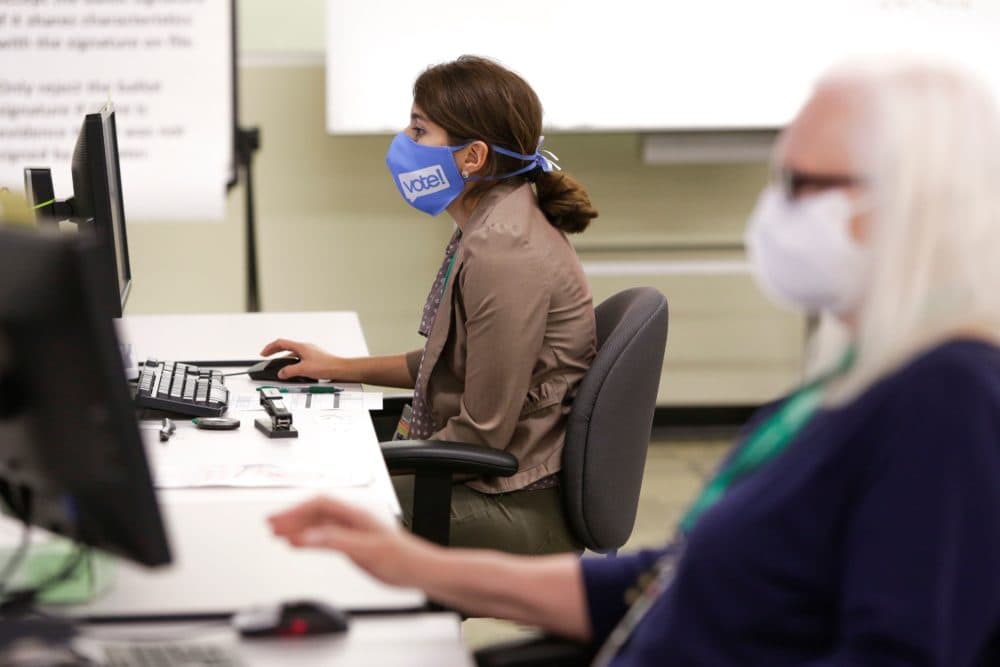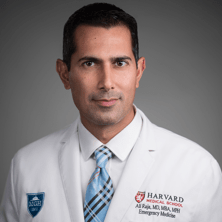Advertisement
Commentary
There's A New Remedy For The Sick: Voting

Our country is stuck in a startling paradox: in poll after poll, Americans say healthcare is their single most important issue, yet 51 million forego a considerable amount of power in shaping our nation’s health policy — because they aren’t registered to vote. The COVID-19 pandemic has only deepened this paradox: the importance of our health system is startlingly clear, while registering to vote is harder than ever.
During this painful and challenging time, Americans have put their trust in healthcare providers. Hospitals, doctors and nurses have earned a higher approval rating than any other industry since the pandemic began. After six months of witnessing the disproportionate impacts of the pandemic on Black, brown and low-income Americans, healthcare providers are not only working to reinforce this trust, but also to extend it beyond hospital and clinic walls by emphasizing the importance of civic engagement in improving health outcomes for everyone.
Historically, healthcare providers have voted at lower rates than the general population. But this year is shaping up to be different — doctors, nurses, social workers and their colleagues are taking action, and inspiring others to do the same.
Since May, more than 14,000 healthcare providers from across the country have requested voter registration kits from VotER, a voter registration initiative founded by Dr. Alister Martin, an emergency physician at Mass General. Healthcare providers use these kits to facilitate conversations with their patients about voting, and patients are able to scan a QR code on the kit to register to vote or request a vote-by-mail ballot.
The project is getting national attention. In a recent New York Times piece, VotER was described as part of a “larger movement that pushes medical professionals to address the underlying social conditions — such as hunger, drug addiction and homelessness — that make their patients sick in the first place.”
This movement is fundamentally changing the culture of healthcare by defining civic health and voter access as essential components of patient care. These healthcare providers are increasingly recognizing that their patients’ physical and mental health is inextricably linked to their civic health, defined as “how equipped a community is to engage in activities that require collective action.”
Right now, one of the most important remedies these healthcare providers can offer is a prescription for civic health, centered on informing patients how to register to vote, receive a mail-in ballot or vote safely in person.
Awareness of this new imperative is extending beyond individual providers and into medical institutions. A community health center in Milwaukee texted 10,000 patients to remind them to register to vote. The University of Pennsylvania hospital system ensures that hospitalized patients can vote on Election Day. The American Academy of Pediatrics encouraged its member pediatricians to sign up for voter registration kits. And medical students from rival schools Duke University and the University of North Carolina competed against each other to generate over 500 voter registrations and absentee ballot requests in just 12 days.
Advertisement
These institutions and their healthcare providers understand that for the health sector to recover — and continue to treat the communities and patients they serve effectively — patients and their providers need to come together to help repair what COVID-19 has damaged, one vote at a time.
This movement is fundamentally changing the culture of healthcare by defining civic health and voter access as essential components of patient care.
In recognition of this responsibility, more than 10,000 providers and 65 healthcare and civic engagement organizations are teaming up this August to launch Civic Health Month, a nationwide effort to raise awareness of the link between our democracy and our health. The goal is to empower our patients with the ability to vote — and vote safely — during the 2020 election.
Civic Health Month celebrates that the more civically engaged we are as a country, the healthier we will be. And most importantly, that voting gives people a voice in molding the policies that affect them. This is a core tenet of democracy — improving the rates at which we vote helps ensure that communities are built and shaped by the people who know them best.
We encourage healthcare providers across the country to join us in improving our patients’ civic health. If you take care of patients, talk to them about voting. If you help to lead a hospital, join us as a partner. If you are a patient looking to register to vote or request your mail-in ballot, complete your Healthy Voter Checkup, then encourage your friends to do the same.
Together, we can build a healthier democracy.

